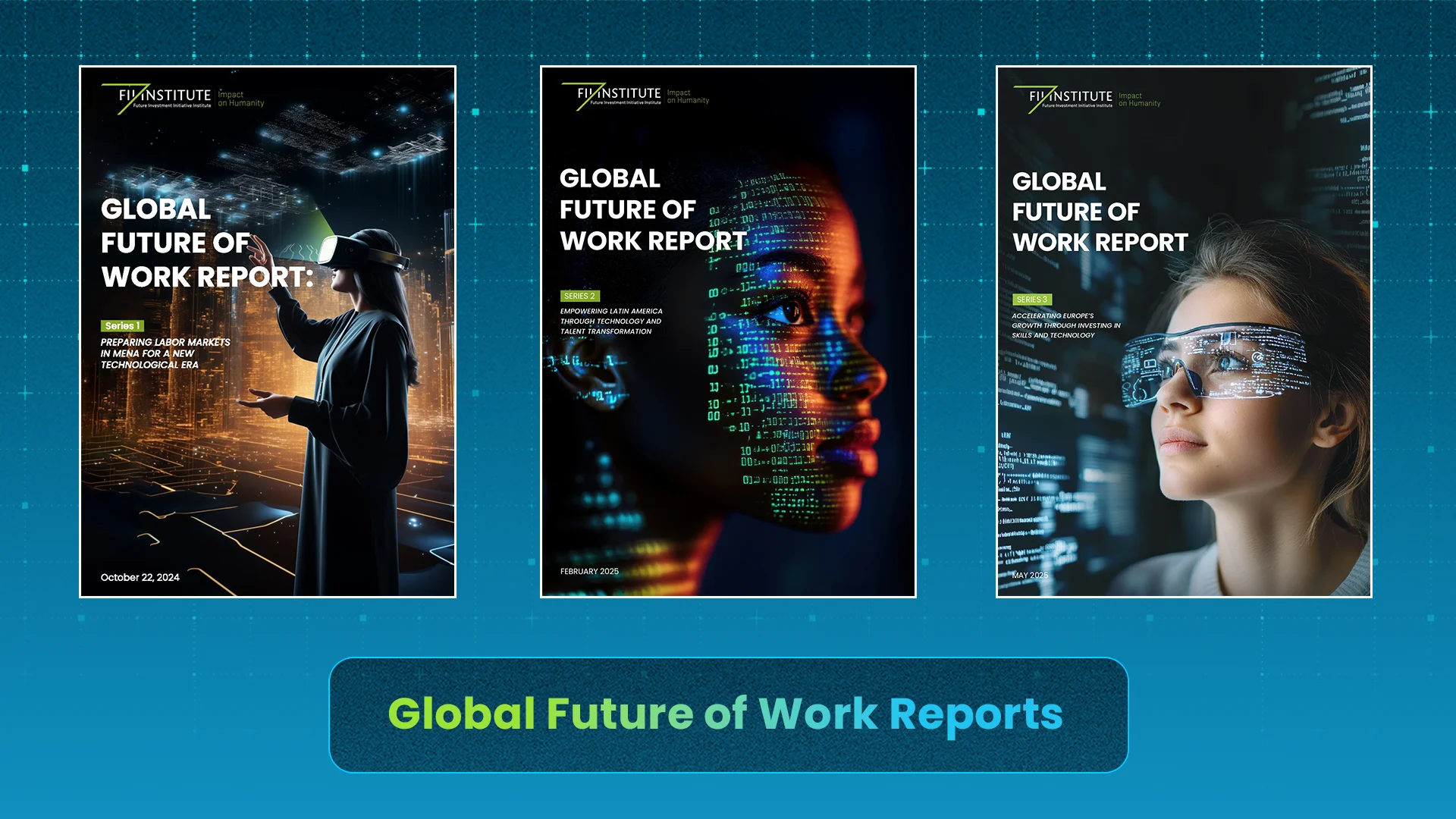THINK
Guided by experts, partnered with esteemed academia, and run through a passionate team, FII Institute's THINK pillar aims to empower the world's brightest minds to identify the solutions that make a difference in lives globally. We do this by collaborating with high-caliber partners, building momentum towards change and pursuing thought leadership in the service of humanity.
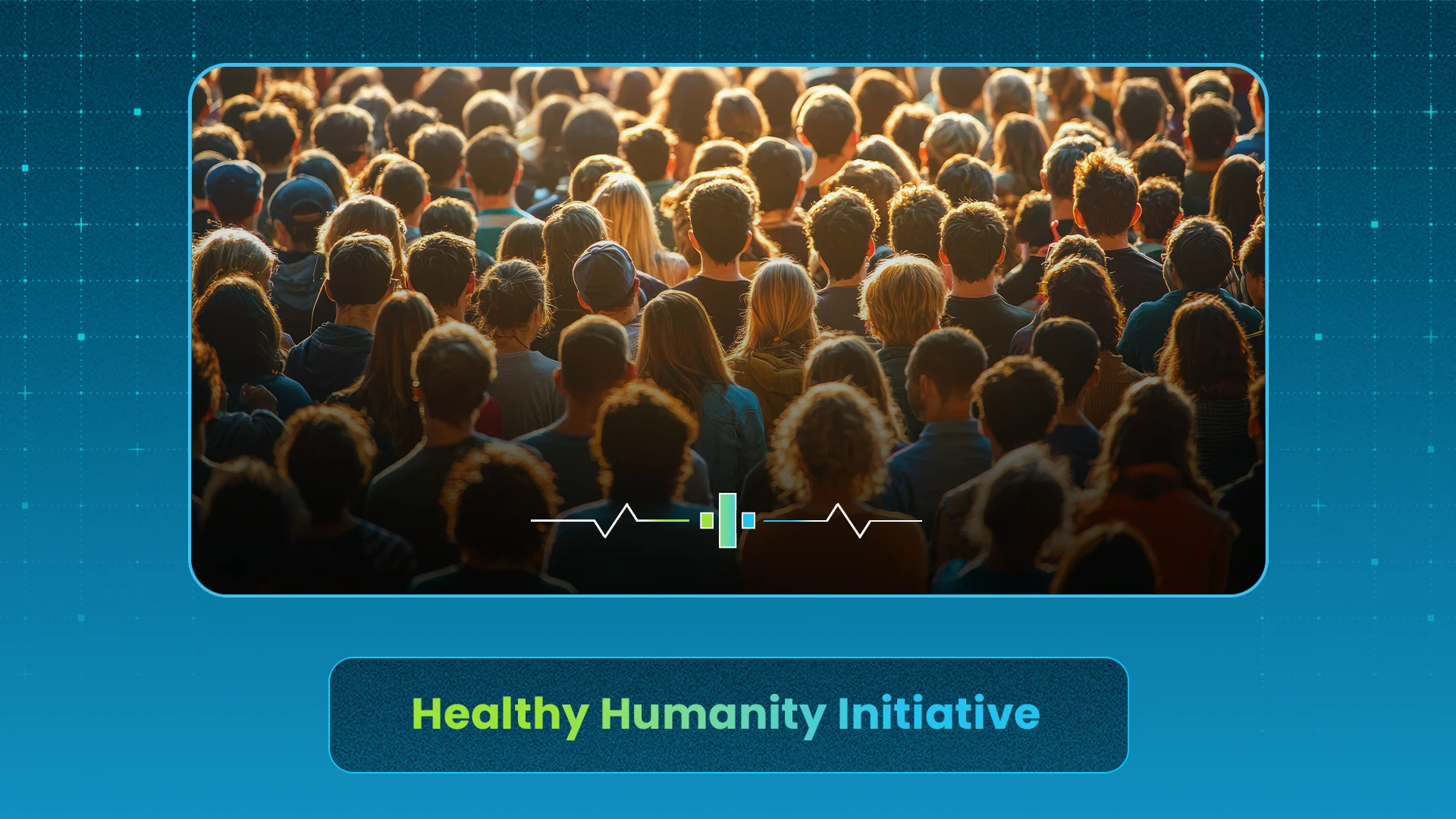
HealthyHumanity Initiative
#HealthyHumanity is an initiative dedicated to building a society where preventive medicine, holistic health, and global wellbeing are not just aspirations but realities. We invite corporations, insurers, governments, and medical equipment manufacturers to join the movement and pioneer FII Institute’s #HealthyHumanity initiative worldwide.
Join us in creating a healthier tomorrow for everyone.
AI.Inclusive Initiative
Additionally, we will partner with academia and consultancy firms to provide capacity building on AI, collaborate with large tech firms to support the provision of AI tools and training, and work with governments and policymakers to provide tax breaks for these investments and for AI broadly, fostering an AI ecosystem that can scale easily.
Join us in shaping an inclusive future with AI.

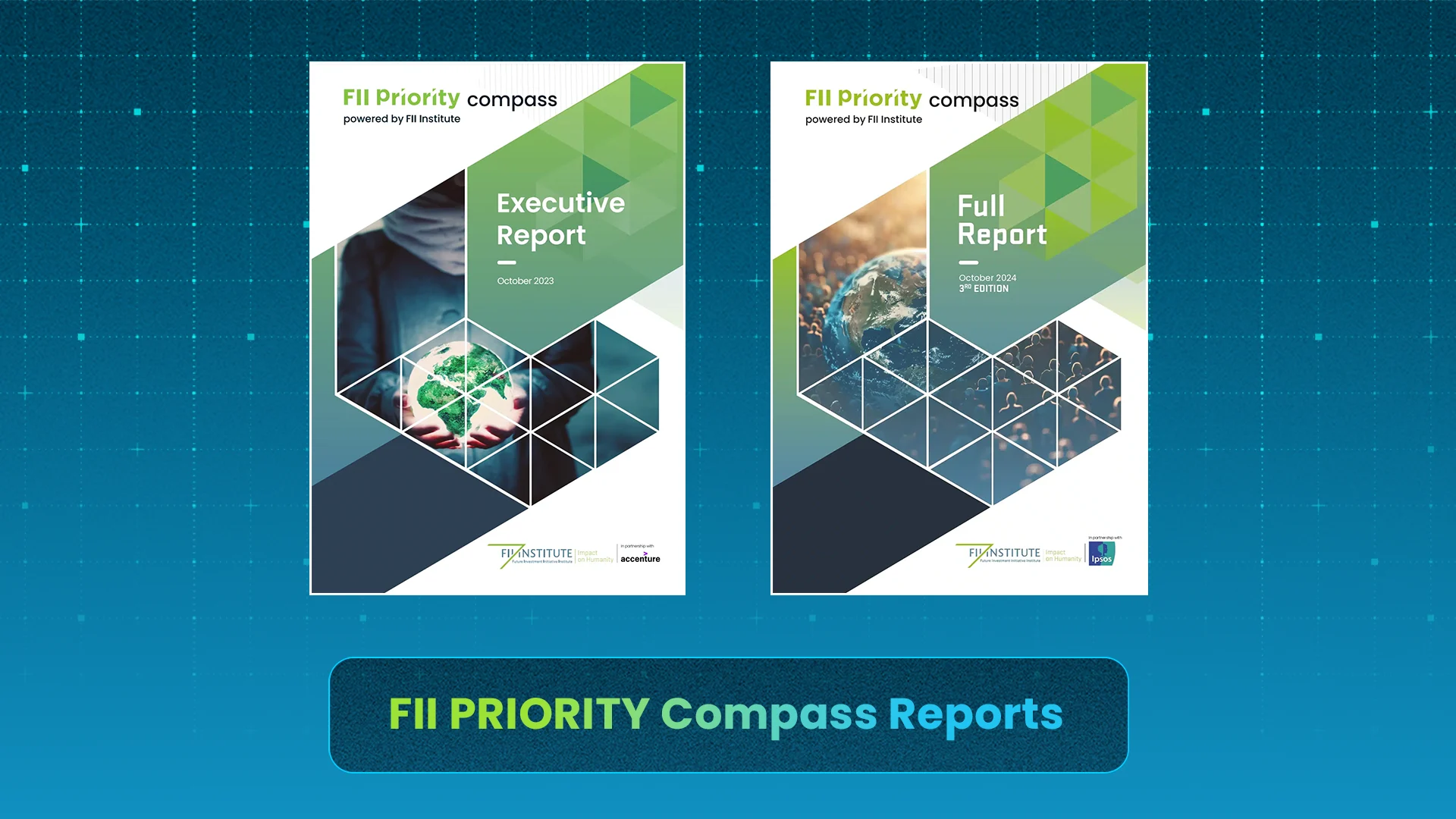
FII PRIORITY Compass 2024
FII Institute reveals the third edition of its FII PRIORITY Compass to deep dive into humanity’s top priorities in 2024.
In partnership with Ipsos, FII Institute surveyed 50,000+ respondents in 24 countries representing 62.5% of the global population.
For the third year in a row, FII Institute uncovers global citizens’ concerns and provides original data to help world leaders and decision makers set the way to concrete solutions.
Download the FII PRIORITY Compass 2024 report and explore key insights on global citizens priorities and explore further details of the survey on: https://fiiprioritycompass.org/
Global Future of Work Compass
Countries around the world are facing critical productivity and labor market challenges from a range of factors including shifting demographics, urbanization, and the rise of technologies.
We are announcing the Global Future of Work Compass which aims to identify the risks and opportunities faced by companies around the globe.
Download The Global Future of Work report and explore key insights on Europe, America and MENA's approach in embracing new technologies and explore further details of the survey on: www.futureofworknavigator.com
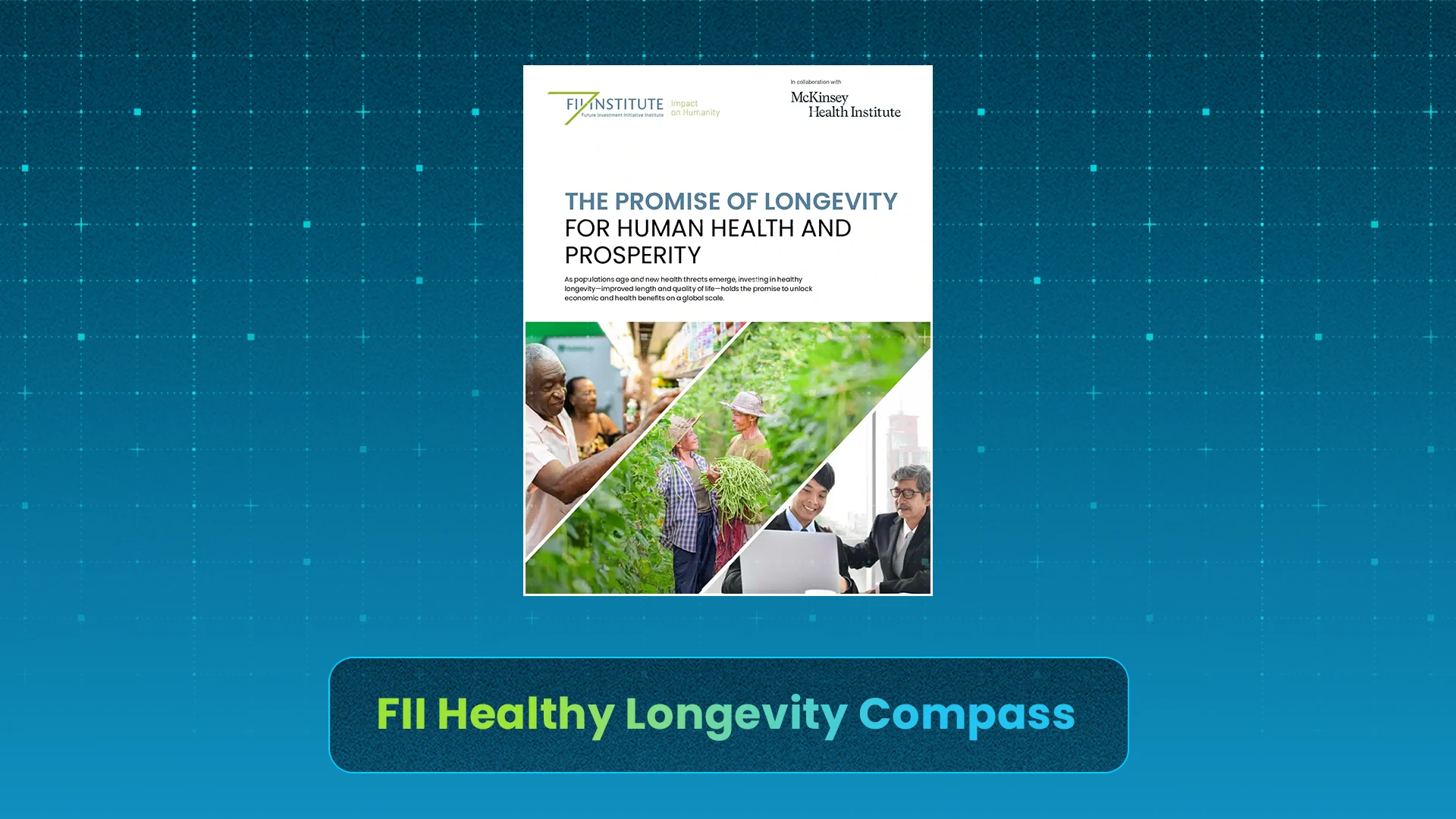
FII Healthy Longevity Compass
WAVE
Powered by the Future Investment Initiative (FII) Institute, and in partnership with the Ministry of Energy of the Kingdom of Saudi Arabia, Wave strives towards the ambitious yet attainable goal of Ocean Regeneration within a Human Generation.
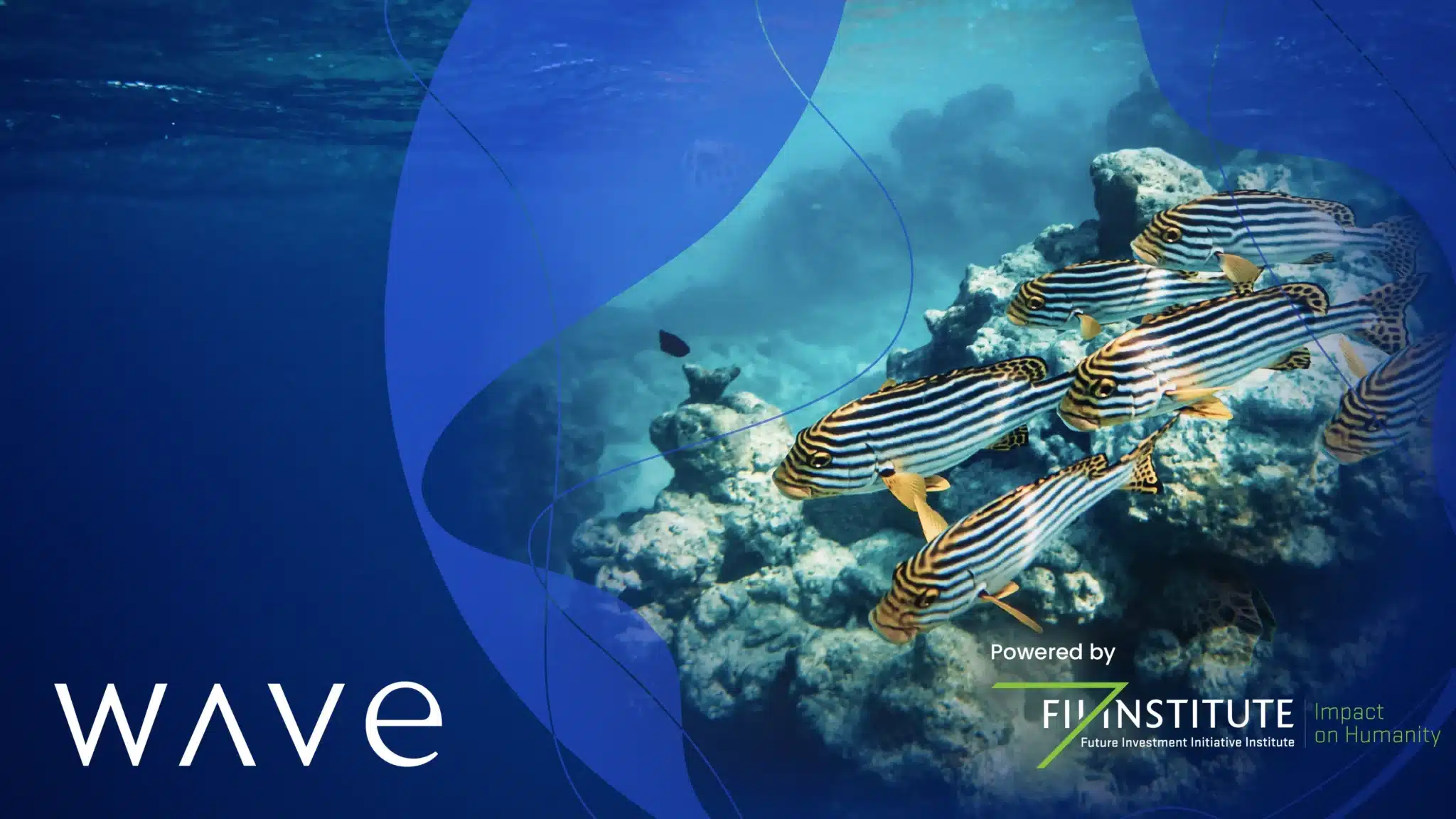
Partnership with Columbia University - AI and the Future of Work
Recent PUBLICATIONS
View All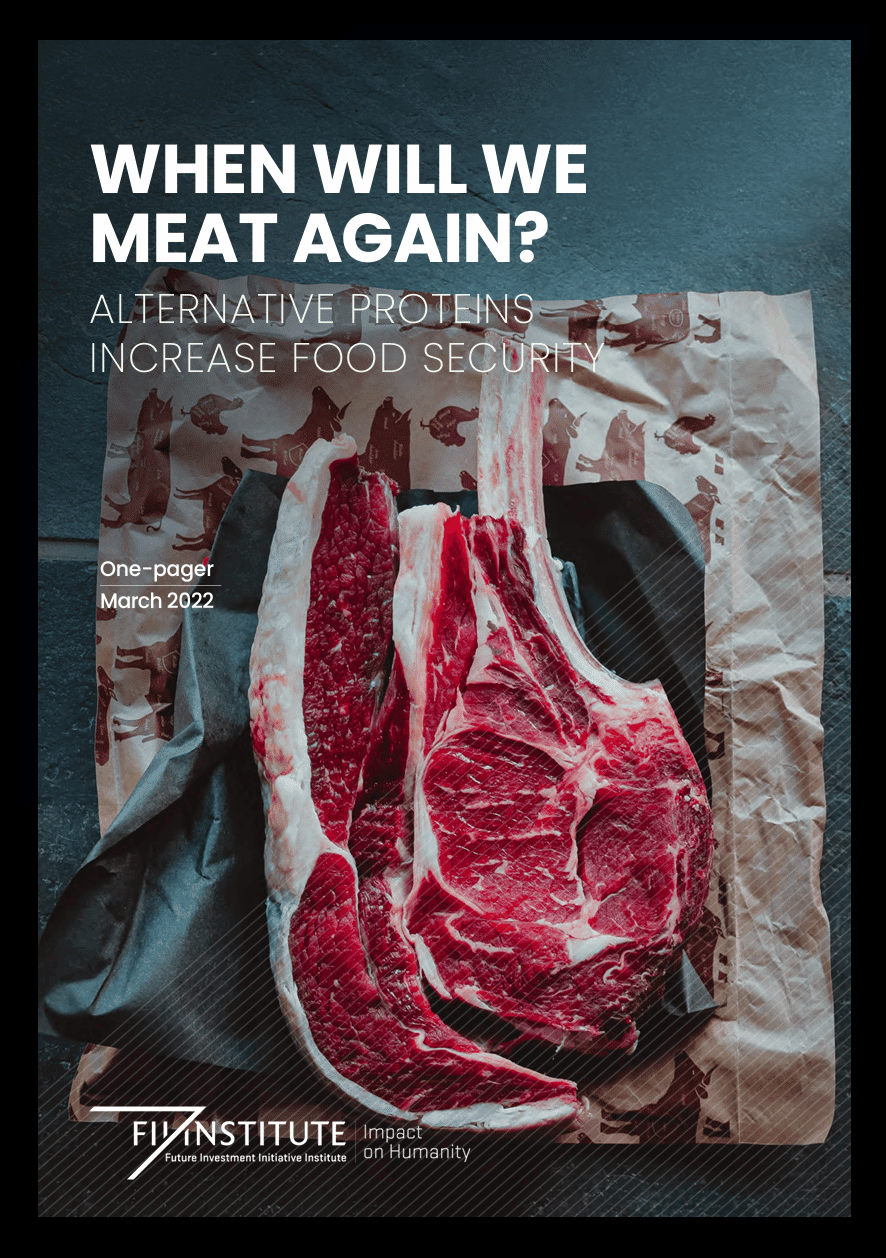
Sustainability
One-pager: When Will We Meat Again
With skyrocketing food prices, the livelihood of billions of people is at risk. Plant-based alternatives to meat and milk can increase food security by decreasing livestock feed. The time is ripe for massive upscaling of meat and milk alternatives – and an equally massive down-scaling of prices.

Healthcare
One-pager: Vaccine Apartheid
The Covid-19 pandemics offered a great opportunity for the Global community to practice international solidarity. But the opportunity was missed, the multi-national institutions have failed to ensure equitable vaccine access. The prevailing “My-interest-first” policies have reduced the overall efficacy of the vaccination campaign and damaged the trust in global solidarity. International health policy needs a shift to humanity.
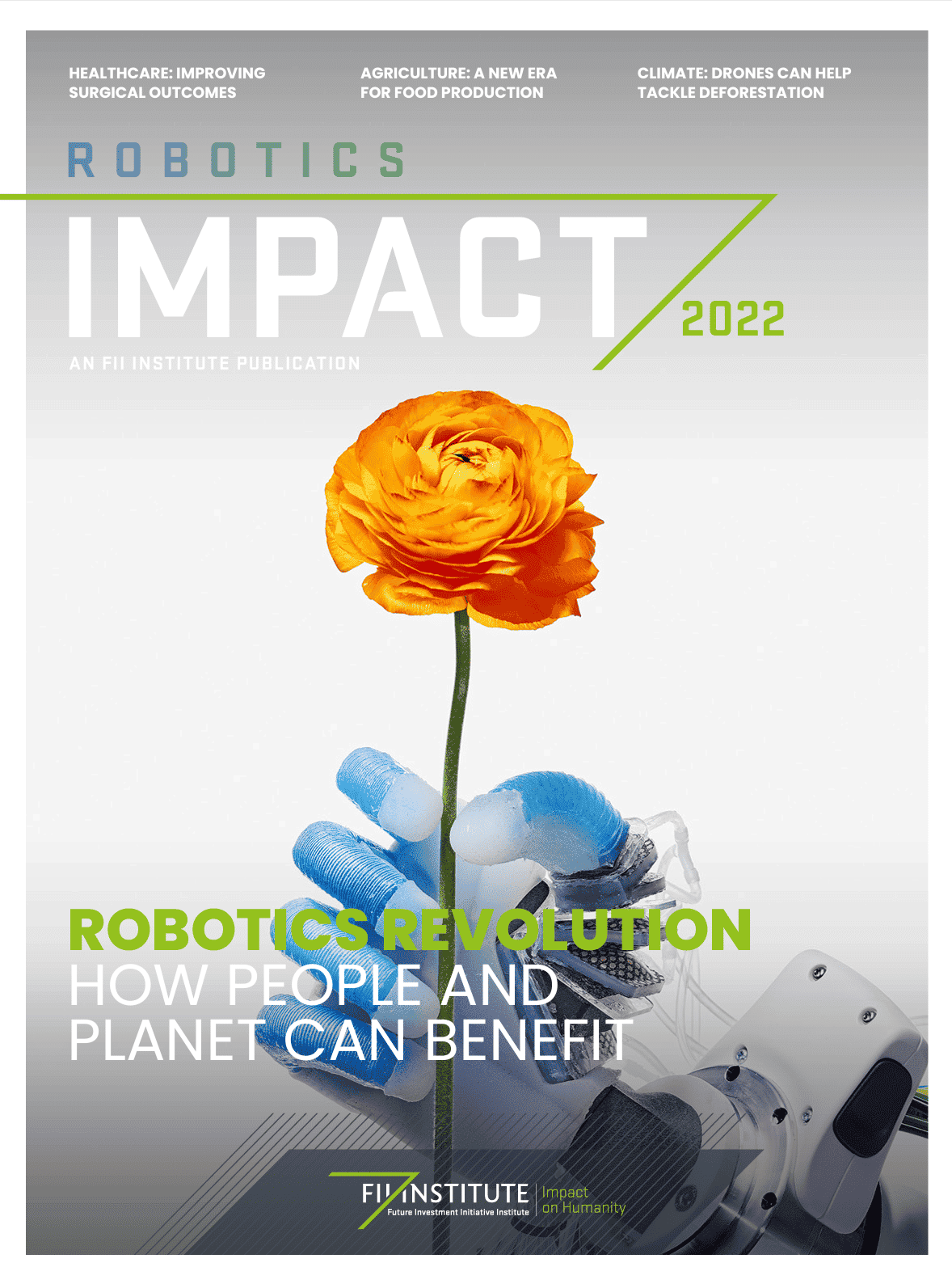
AI & Robotics
Impact Report 2022: Robotics Revolution
FII Institute publishes its fifth impact report as we enter a golden age for innovation in robotics. In the mid- 20th century, many scientists and writers envisioned the 2020s as full of highly intelligent robots of all shapes and sizes. While this might not have happened quite as imagined, things are now changing fast.



